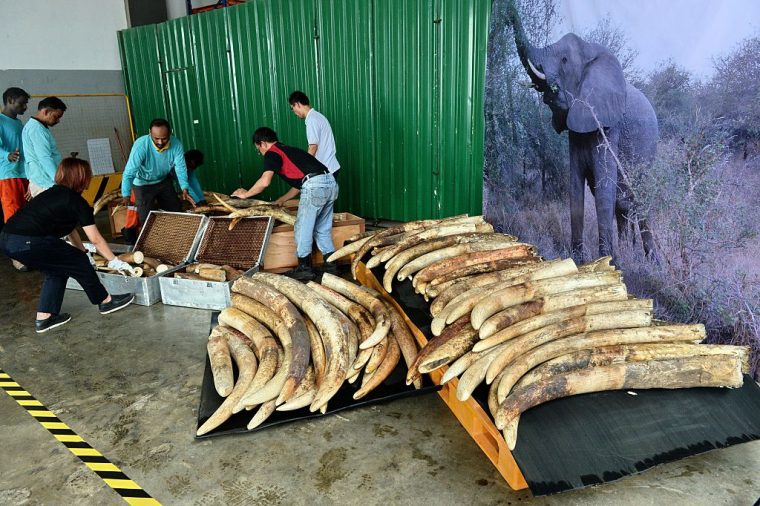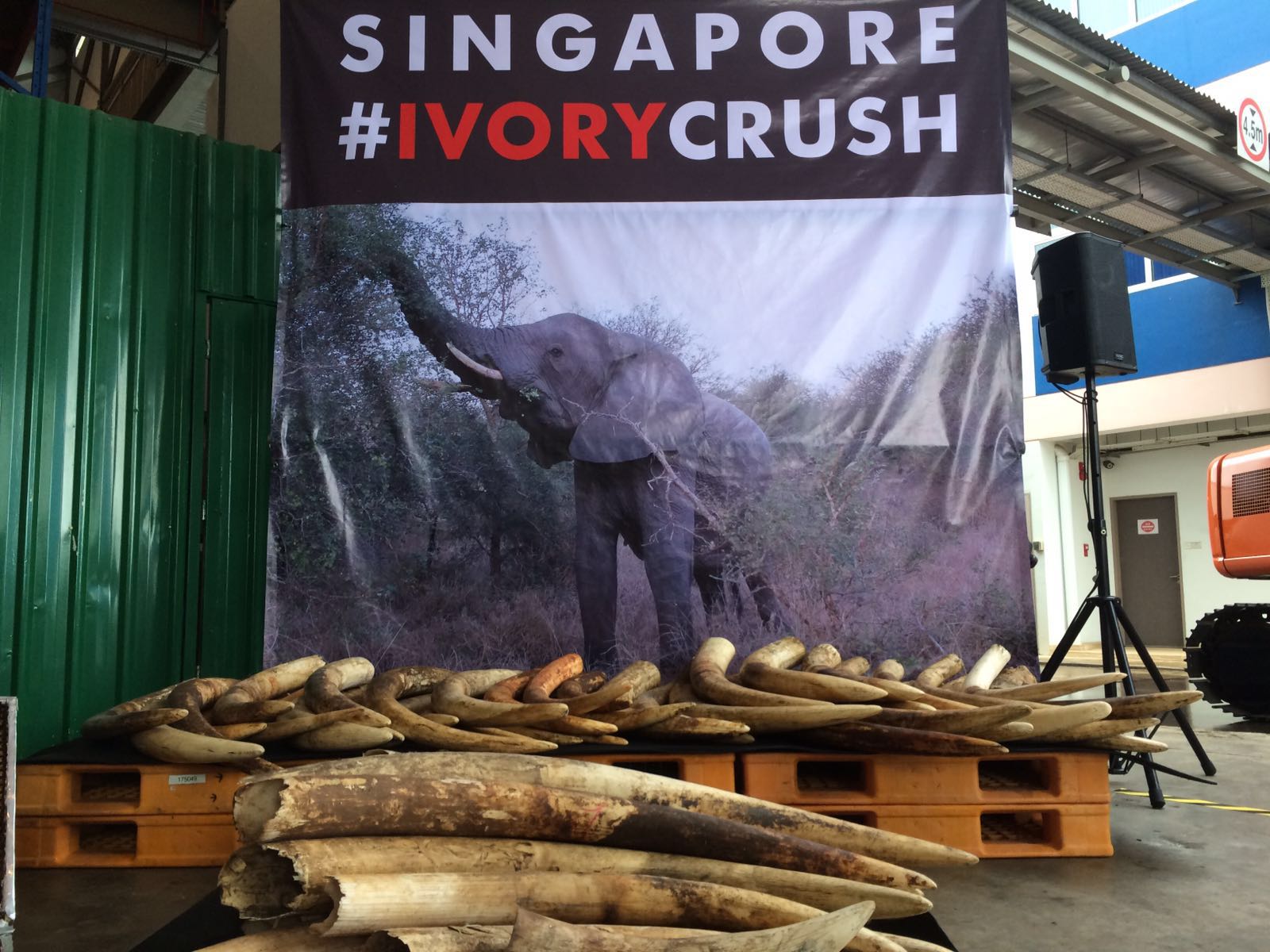As you might have heard, the Agri-Food and Veterinary Authority (AVA) has sought public feedback on a proposed total ivory ban in Singapore.
Many Singaporeans, as you might also expect, expressed unequivocal support to the ban online.
WWF backs idea too
On Friday, Nov. 30, the World Wide Fund for Nature (WWF) threw its support behind the proposal, saying it is important given that Singapore is a global hub for shipping and hence will impact and deter syndicates involved in elephant poaching and the ivory trade. A spokesperson said:
“This move demonstrates Singapore’s strong leadership in addressing the ivory trade, and is a clear signal that Singapore does not tolerate illegal wildlife crime, trafficking and trade.”
At the same time, it also gave recommendations to make the ban even more effective:
1. Prevent stockpiling
 Workers prepare for the illegal ivory to be destroyed by a rock-crusher machinery in Singapore on June 13, 2016.
Workers prepare for the illegal ivory to be destroyed by a rock-crusher machinery in Singapore on June 13, 2016.
Singapore on June 13 destroyed 7.9 tonnes of elephant ivory it had confiscated over 2014 and 2015 estimated to be worth $9.6 million, which authorities hope will send a strong signal to those who have used the country as a conduit to smuggle endangered species and their parts. Photo by Roslan Rahman / AFP
The announcement of a complete ban can alarm ivory traders in the market and trigger the purchase of more ivory stock before it is implemented.
As such, WWF says an immediate suspension of the issuance of import and export licenses will prevent people from stockpiling new ivory.
Retailers, says WWF, should also declare their inventory immediately and any undeclared items should not be allowed to be sold, even before the end of the grace period.
And because elephant ivory could be concealed as being from extinct species such as mammoth or mastodon ivory (because it's tough to distinguish), WWF also recommends that the government issue a permit for the trading of ivory from extinct species that requires traders to prove their authenticity by providing a certificate issued by a credible third party.
2. Increase penalties
According to American environmental organisation WildAid, ivory is the fourth-largest illegal trade in the world, after drugs, human trafficking and counterfeited goods.
And with many other contraband items, imposing a ban can incentivise shady trading in the black market. This, WWF notes, can be countered by levying heavy penalties.
As a global transit hub, WWF strongly recommends that Singapore increase the penalties for ivory trafficking to between four and 10 years' jail from the current two years.
A four-year minimum jail sentence is also aligned with the definition of a “serious crime” under the United Nations Convention against Transnational Organised Crime.
The WWF also recommends that the maximum fine for ivory trafficking should also be raised from S$500,000 to S$5 million, a move that it says will more effectively signal the gravity of this crime and deter potential perpetrators.
3. Ensure effective enforcement
All these efforts will still go to naught without diligent enforcement, and the WWF urges the government to deploy sufficient resources in doing so.
This includes monitoring efforts, intelligence-led police investigations, border controls, cybercrime and immigration customs as well as inter-agency cooperation.
4. Reduce the grace period for ivory retailers from three years to one year
WWF also strongly recommends reducing the grace period given to affected stakeholders be reduced to one year instead of the proposed three, since Singapore has a “small and inactive domestic market”, according to the AVA.
Last but not least, WWF also calls for a regional effort against illegal wildlife trade.
Top photo courtesy of WWF Singapore
If you like what you read, follow us on Facebook, Instagram, Twitter and Telegram to get the latest updates.
